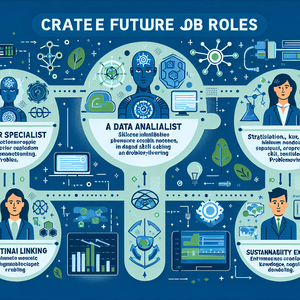The Future of Criminal Justice Careers with Axon

The integration of technology in criminal justice has led to the emergence of new roles that didn't exist a decade ago. Positions such as data analysts, digital forensics experts, and cybersecurity specialists are now essential in modern law enforcement agencies. Axon Careers recognizes this shift and actively works to equip candidates with the necessary skills to thrive in these innovative positions. For instance, as police departments increasingly rely on data analytics to inform their strategies, the demand for professionals who can analyze and interpret this information has surged. Traditional policing methods are giving way to data-driven approaches, making it imperative for agencies to employ individuals who can extract actionable insights from complex datasets. Axon’s training programs and partnerships with educational institutions ensure that aspiring data analysts and other tech-savvy professionals are well-prepared to meet these demands, offering courses focused on software tools and analytical techniques designed specifically for law enforcement applications.
Support for Transitioning Professionals
Transitioning to new roles within the criminal justice system can be daunting, especially for seasoned professionals who may feel out of touch with technological advancements. Axon Careers provides a robust support system for these individuals through resources such as mentorship programs, workshops, and skill development courses. A notable success story is that of a former police officer who transitioned into a role as a digital forensics specialist. With the help of Axon’s career development initiatives, he obtained the necessary certifications and hands-on experience that allowed him to successfully pivot into this critical area. This not only benefitted his career trajectory but also enhanced the capabilities of his department in investigating cybercrimes, showcasing the profound impact of Axon’s support on individual careers and departmental efficiency.
Collaboration with Educational Institutions
Recognizing the importance of education in preparing the next generation of criminal justice professionals, Axon Careers collaborates with universities and training programs. These partnerships are designed to ensure that curricula align with the evolving needs of the industry. Through internships and co-op programs, students gain valuable real-world experience, which is essential for their future careers. For example, Axon has partnered with various criminal justice programs to create internship opportunities that allow students to work directly with law enforcement agencies. This proactive approach not only helps students secure jobs post-graduation but also ensures that law enforcement agencies are staffed with skilled professionals who are ready to tackle modern challenges. Such collaborations are crucial in bridging the gap between academic knowledge and practical application in the field.
Promoting a Culture of Innovation
At the core of Axon’s mission is a commitment to fostering a culture of innovation in criminal justice. This is reflected in their approach to recruitment and career development. By prioritizing candidates who demonstrate creativity, adaptability, and a willingness to embrace change, Axon is cultivating a workforce that is prepared for the future. Axon's innovation lab serves as a testament to this initiative, encouraging employees to experiment with new technologies and methodologies while fostering an environment where fresh ideas can flourish. For example, the lab has been instrumental in developing new software tools that enhance data collection and analysis for law enforcement officers in the field. This culture not only attracts top talent but also retains professionals who are eager to contribute to meaningful advancements in the field, ensuring that the organization remains at the cutting edge of criminal justice technology.
The future of criminal justice careers is undeniably intertwined with technological advancements, and Axon Careers is leading the charge in shaping this evolution. By focusing on emerging roles, supporting professionals in their transitions, collaborating with educational institutions, and promoting a culture of innovation, Axon is not just keeping pace with change; it is actively driving it. As we look toward the future, it is evident that organizations like Axon will play a pivotal role in preparing the next generation of criminal justice professionals while redefining the very fabric of law enforcement. For those seeking a fulfilling career in this dynamic field, Axon Careers offers a pathway to success that aligns with both personal aspirations and the needs of a modern society. By bridging the gap between traditional practices and innovative techniques, Axon is not only enhancing career opportunities but also contributing to a safer and more efficient criminal justice system for all.
Data Analyst in Law Enforcement
Police departments, government agencies, and private security firms
Core Responsibilities
Analyze and interpret crime data to inform policing strategies and resource allocation.
Develop predictive models to forecast crime trends and hotspots.
Collaborate with law enforcement personnel to translate data insights into actionable strategies.
Required Skills
Proficiency in data analysis tools (e.g., SQL, R, Python).
Strong analytical and problem-solving abilities.
Experience with data visualization software (e.g., Tableau, Power BI).
Digital Forensics Specialist
Federal and state law enforcement agencies, private investigative firms, and cybersecurity companies
Core Responsibilities
Recover and analyze data from electronic devices involved in investigations.
Prepare detailed reports and presentations of findings for legal proceedings.
Collaborate with law enforcement officers and legal teams in case preparation.
Required Skills
Familiarity with digital forensic tools (e.g., EnCase, FTK).
Knowledge of cybersecurity principles and practices.
Certification in digital forensics (e.g., Certified Computer Examiner, Certified Cyber Forensics Professional) is a plus.
Cybersecurity Analyst in Law Enforcement
Government agencies, law enforcement IT departments, and cybersecurity firms
Core Responsibilities
Monitor and protect law enforcement networks from cyber threats.
Conduct vulnerability assessments and implement security measures.
Respond to security incidents and breaches, providing remediation strategies.
Required Skills
Strong understanding of network security protocols and firewalls.
Familiarity with incident response and disaster recovery planning.
Relevant certifications (e.g., CompTIA Security+, Certified Information Systems Security Professional) preferred.
Crime Intelligence Analyst
Local police departments, federal agencies (e.g., FBI, DEA), and private intelligence firms
Core Responsibilities
Gather and evaluate information from various sources to identify criminal patterns and trends.
Produce intelligence reports to assist in ongoing investigations and crime prevention efforts.
Collaborate with law enforcement teams to support strategic initiatives and operations.
Required Skills
Proficient in intelligence analysis software and tools.
Strong research and analytical skills, with attention to detail.
Experience in law enforcement or security operations is beneficial.
Technology Integration Specialist
Law enforcement agencies, technology vendors specializing in public safety solutions, and consulting firms
Core Responsibilities
Implement and maintain advanced technology solutions for law enforcement agencies, such as body cameras and data management systems.
Provide training and support to officers and staff on new technologies.
Assess and recommend technology upgrades to improve operational efficiency.
Required Skills
Technical proficiency in law enforcement technology and IT systems.
Strong communication skills to effectively train and support users.
Project management experience to oversee technology implementation initiatives.


